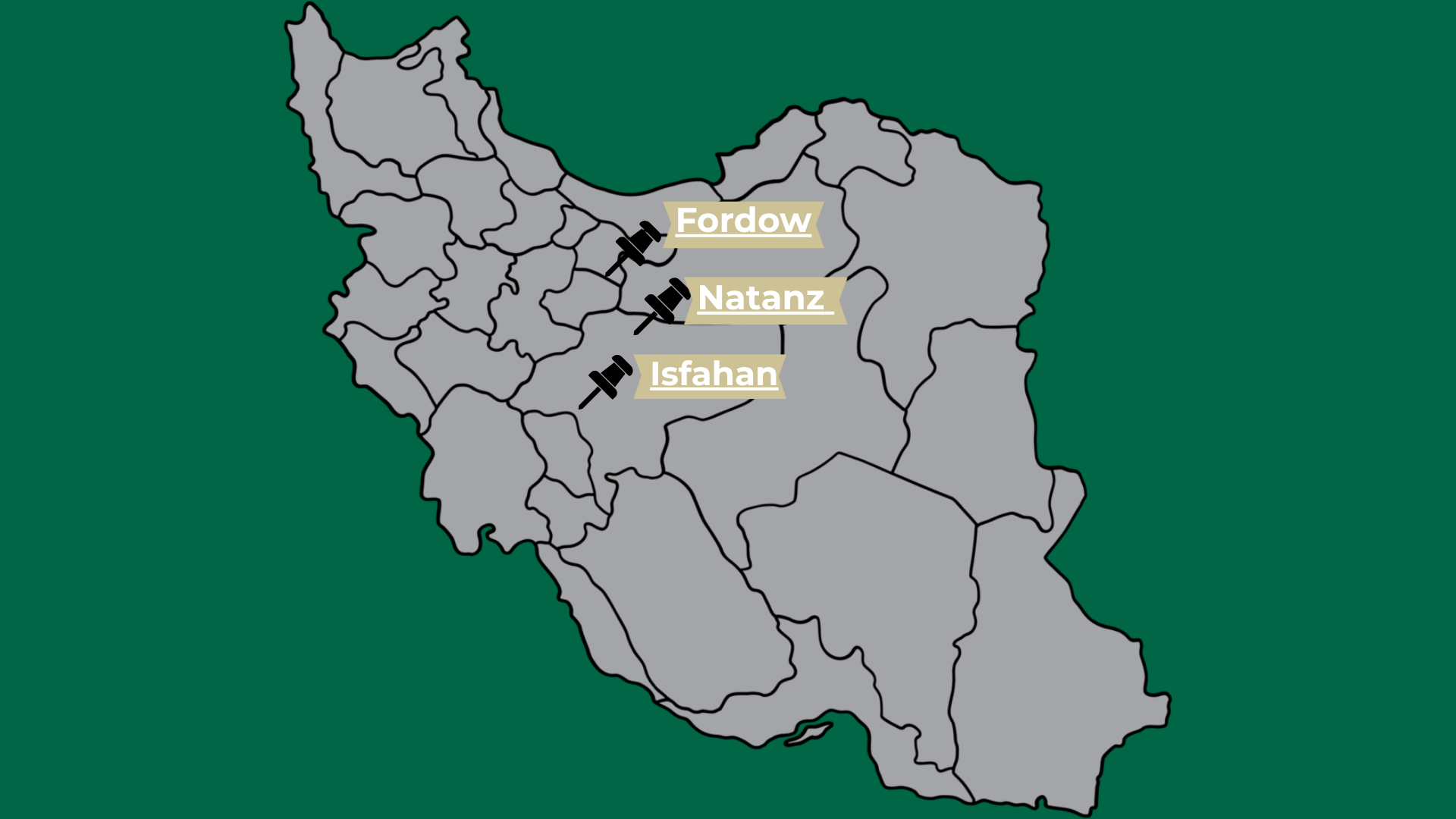USF professors weigh in after US strikes on Iran nuclear sites

Kyle Burke has seen the U.S. enter multiple Middle Eastern conflicts, such as Afghanistan in 2001 and Iraq in 2003. Still, he said he wasn’t surprised when he saw the U.S. enter another in June.
Burke, a USF history professor, has been studying and teaching U.S. foreign relations for nearly two decades.
“I had a sneaking inclination that despite President Trump’s two-week period of negotiations, he would enter the war in some way,” Burke said.
Some USF professors said the U.S. involvement in the Israel-Iran war marks a challenging decision to defend Israel. Still, they said they hope for long-term resolutions in the Middle East.
Related: USF international students are among those losing visas
There had been a growing cry for U.S. involvement in the conflict between Israel and Iran, where Israeli officials urged President Donald Trump’s administration to join the war, according to the Associated Press.
Iran is the only Middle Eastern country that is believed to have nuclear weapons, according to AP.
Trump restarted nuclear talks with Iran earlier this year, but those were interrupted when Israel attacked Iran on June 13, targeting military personnel and nuclear facilities.
The U.S. military launched airstrikes on three Iranian nuclear facilities – Fordo, Natanz and Isfahan – on June 21, according to AP.
On the same day, President Trump said in an address to the nation that the 14 “bunker-busting” bombs that were dropped “completely and fully obliterated” the Iranian nuclear sites.
Iran responded just hours later by launching missile strikes at Israel, destroying cars and apartment buildings and injuring 23 people, according to AP.
Related: USF international students navigate travel under new visa limitations
Israeli strikes from June 13-24 killed over 1,000 people in Iran, according to AP. Meanwhile, at least 24 people in Israel died from Iranian strikes, according to the United Nations.
The two countries agreed on a tentative ceasefire on June 24, according to AP.
But Burke said the situation remains “highly volatile” because of the impact on Iran’s nuclear facilities.
“It’s a promising sign that all parties hope to avoid a larger war,” he said. “The potential for conflict restarting is quite high.”
The U.S. and Israel have shared a close economic and military partnership for over half a century. The U.S. was the first country to recognize Israel as an independent state in 1948, according to the U.S. State Department.
The U.S. has also approved nearly $12 billion in foreign military sales to Israel since Trump took office in January, according to the U.S. State Department.
During last year’s election day speech on Nov. 5, Trump said he wouldn’t enter the U.S. into any foreign conflicts, according to AP.
But Burke said he thinks Trump broke his promise because there was pressure to protect Israel, one of the U.S.’s greatest allies.
“I think Trump himself is quite torn between conflicting priorities of maintaining his campaign pledegs and demonstrating American power and American commitment to its longest and most important ally in the region for many years now,” Burke said.
Related: USF professors worry about international students amid political pressure
Mohsen Milani is the executive director of the USF Center for Strategic and Diplomatic Studies. He is also a politics professor and the author of the book “Iran’s Rise and Rivalry With the U.S. In The Middle East.”
As an Iranian native, he said he wishes for a nuclear agreement between the U.S. and Iran.
“I’ve always advocated for de-escalating tensions between the United States and Iran,” Milani said.
Iran retaliated by firing missiles at a U.S. military base in Qatar on June 23. There were no reported injuries, according to AP.
Iran warned the U.S. and Qatar about the attack hours before the airstrikes, and 18 of the 19 missiles were shot down by Qatar air defenses, according to AP.
Burke said the strikes on Qatar were “merely” an image of military power – and a sign that Iran wanted to de-escalate the conflict.
“The best way I can understand them is symbolic rather than substantive,” Burke said.
After the U.S. strikes on Iran, Trump declared, “NOW IS THE TIME FOR PEACE,” on Truth Social.
Milani said he hopes that is the case.
“I pray for peace, something President Donald Trump has reportedly said he’s pursuing,” Milani said.







